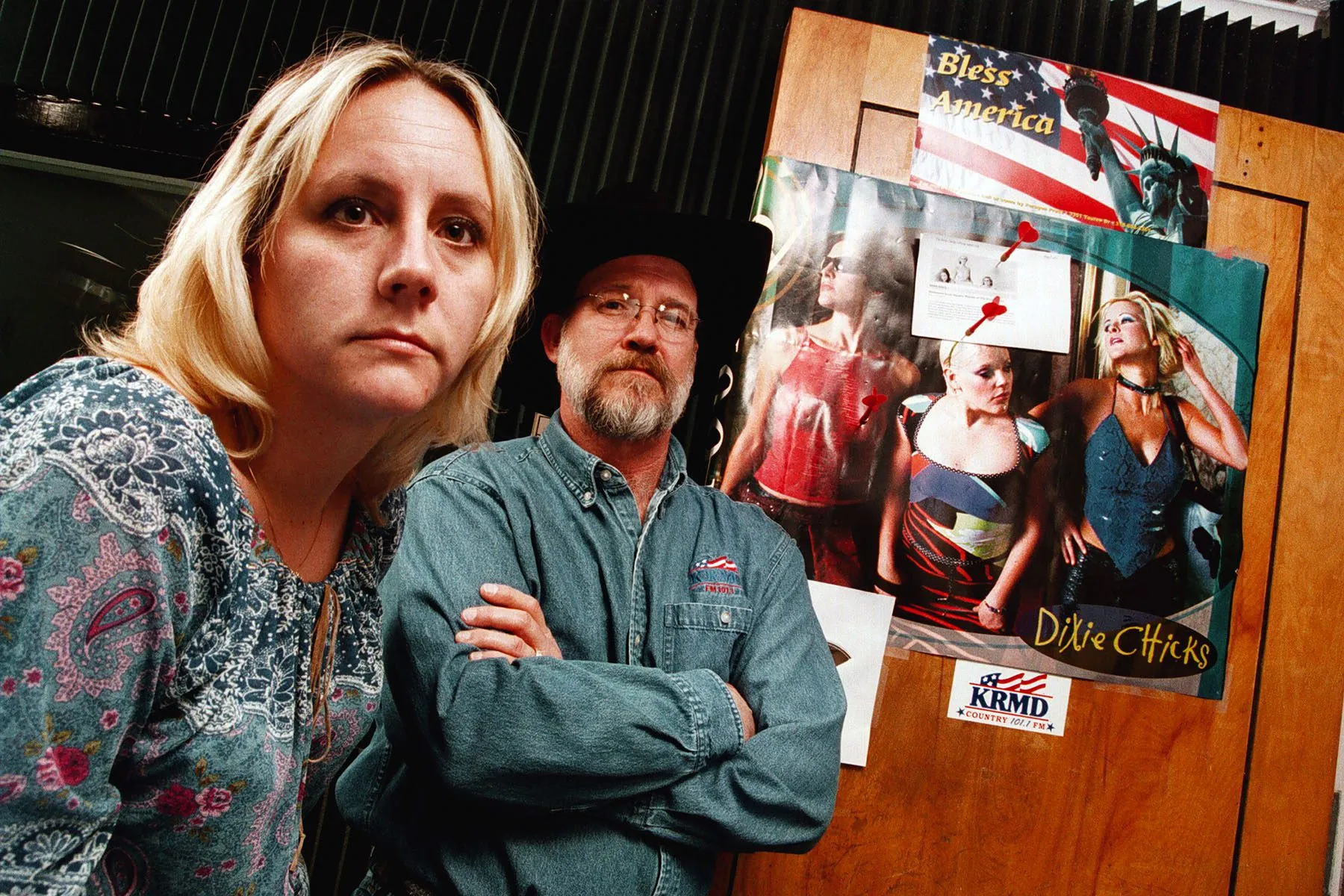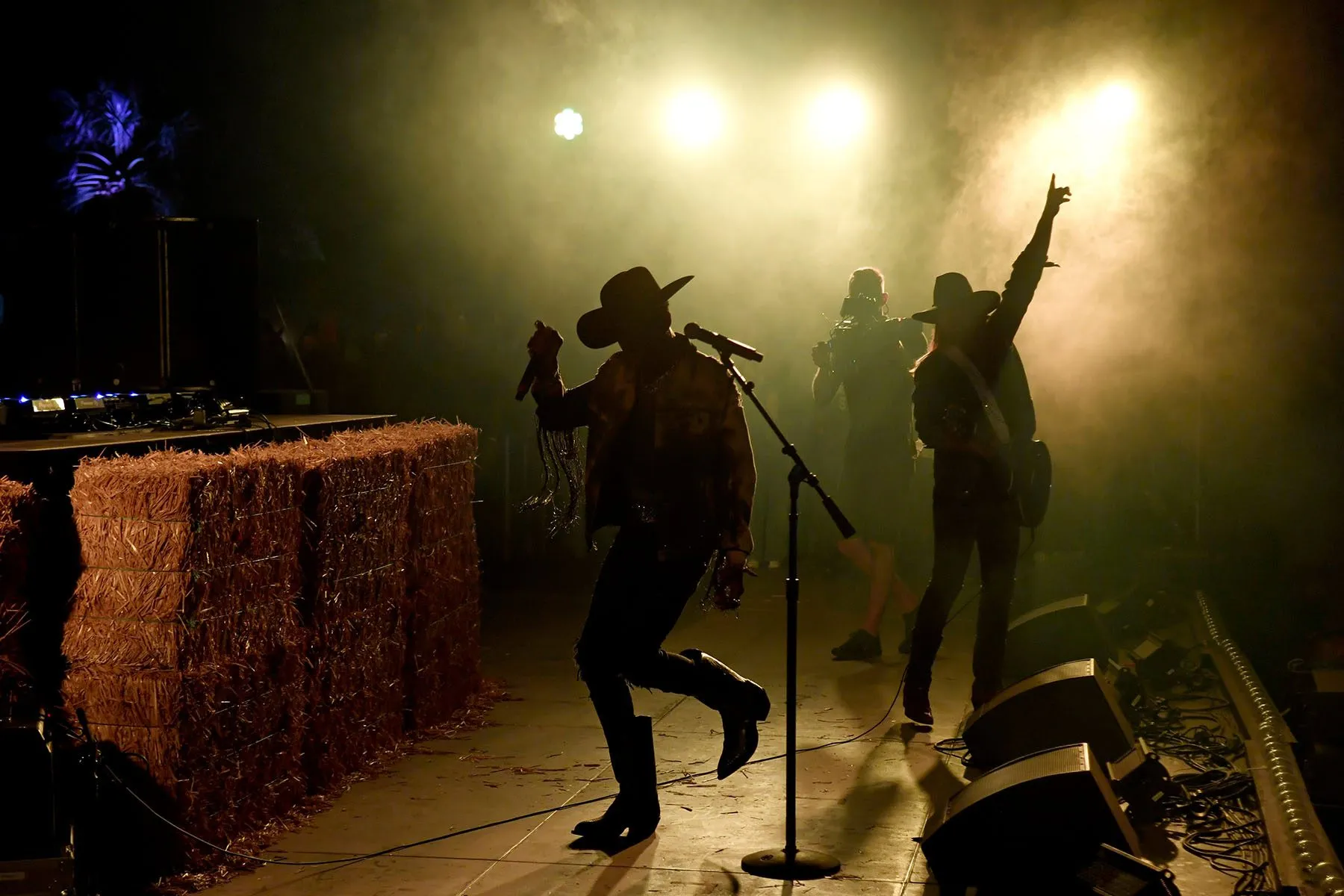Six weeks before the nominations for the 2022 Grammy awards were even announced, Kacey Musgraves found out that her latest album, “Star-Crossed,” would not be eligible for a Best Country Album nomination.
All three of Musgraves’ previous albums — “Same Trailer, Different Park,” “Pageant Material,” and “Golden Hour” — were nominated in this category, with the first and third winning it. “Star-Crossed,” however, is being classified as a pop album. The decision was made within the Recording Academy by an anonymous committee consisting of people who work in the country music industry. (The Grammys are, however, allowing the track “Camera Roll” to be considered for Best Country Song.)
Musgraves quickly took to social media, posting photos of herself performing alongside some of the most notable icons of country music, asking those stars rhetorically if they agreed that you can take the “girl out of country but can’t take the country out of the girl.” Her record label — Universal Music Group Nashville, a country music label — sent a letter to the Recording Academy, asking them to please reconsider their categorization of “Star-Crossed.”
While the fate of Musgraves’s appeal remains to be seen, one thing is already a well-established fact: Country music has a gatekeeping problem, and it’s often tied to gender. A 2019 study from University of Southern California’s Annenberg Inclusion Initiative found that women artists represented only 16 percent of the top 500 country music songs from 2014 to 2018. Women artists also held a smaller percentage of the top charts in country music compared with the Billboard Hot 100 for four out of those five years examined.
In other words, as the researchers concluded, women “are missing in country music.” And the problem only grows more extreme as women artists age — something Musgraves herself, only 33, is now facing.
It is well-documented that country radio program directors are advised against playing too many women artists in a given one-hour programming block; playing two women back to back is downright verboten. Musicologist Jada Watson, who specifically studies the way gender impacts radio play, longevity and industry standing in country music, published research in early 2021 pointing to the way in which this cycle not only keeps women artists out of country music listeners’ ears in the present but creates a self-perpetuating cycle in which annual Billboard lists become dominated by men artists as a result of their greater airplay, effectively erasing the impact, influence and sound of women artists from country music history writ large.
Even those women who have become icons in country music did so by presenting a very specific form of performed femininity, Lorie Liebig, the host of the podcast “More Than a Cowgirl” told The 19th — and still faced nonstop harassment and discrimination as a result of their gender. “The first women to really make their mark in terms of gaining widespread fame faced harassment from people within the industry and even other male artists, terrible record deals and low pay for performances, you name it,” Leibig said. “Loretta Lynn, Patsy Cline, Dolly Parton, they all went through their own battles.”
Today, she said, not that much has changed. “Those challenges still exist,” Leibig says of what women artists are up against in country music, “We are just now getting to the point where those topics are being more openly talked about. But there’s still a long way to go.”
There are some structural reasons why country music has historically had a gender problem. Dean Hubbs, a professor of women’s studies, music and American culture at the University of Michigan, told The 19th that country music as an industry is unique within the larger context of pop music because it actually has a professional organization dedicated to researching and promoting it: the Country Music Association (CMA), which has existed since 1958. Historically, both the CMA and country radio “have sometimes steered country music in directions more conservative than artists’ and listeners’ preferences,” Hubbs said.
Need examples? Look no further than some of the notorious songs banned from country radio, ranging from Kitty Wells’ 1952 “It Wasn’t God Who Made Honky-Tonk Angels” (about how unfaithful men are to blame should a woman be unfaithful), Lynn’s 1975 “The Pill” (about a woman angered and frustrated about having no control over her back-to-back pregnancies driven by her husband’s desires until she’s able to begin oral contraceptives), and Martina McBride’s 1994 “Independence Day” (which drew a connection between American independence and a mother killing her husband in a house fire to escape domestic violence).

Most famously, the all-women country music trio the Chicks (then known as the Dixie Chicks) was outright banned from all country radio — and the industry writ large — for years after Natalie Maines, the lead singer, publicly stated that she was “ashamed that the president of the United States is from Texas” during a 2003 concert in London at the height of then-President George W. Bush’s mounting military intervention in Iraq.
As Hubbs explained, Wells’s, Lynn’s and McBride’s songs were beloved by fans and taken off air simply because they were thought to have “extreme or dangerous messages about women.” The Chicks “weren’t censured for gender content,” Hubbs said, “but they were the highest-profile female artists in the country when country radio led boycotts and record-burning events against them for their political speech.”
In other words: Certain voices are not allowed to have opinions in country music, and because those voices are predominantly those of women, women are often pushed out of fully participating in the industry — and getting to self-identify with the genre — across the board.
Francesca Royster, an English professor at DePaul University who is working on a book on African-Americans in country music, told The 19th that gatekeeping in country not only happens based on gender but also often weaponizes race. Royster pointed to how hard Beyonce had to work to get recognition in traditional country circles for her song “Daddy Lessons” from her 2016 album Lemonade, and how when Beyonce played with the Chicks at the CMA Awards that year “fans commented on her dress — a translucent beaded gown — as being ‘whorish,’ and a sign that as a Black pop star, she didn’t belong in country music.” Royster added that Beyonce’s involvement in the Black Lives Matter movement was also often cited when discussions emerged about her not being “country enough” — a phrase often used to discuss “Daddy Lessons.” (The song was not nominated for Best Country Song at the Grammys the year of its release.)
Similarly, Lil Nas X’s “Old Town Road” was removed from Billboard’s country charts and faulted for not having enough country elements in it, Royster said. “In each of these cases, the defense of style and form is brought up, but it seems not a coincidence that each of these performers are also bold and outspoken artists who are also either women, folks of color, queer or queer friendly, or some combination of these things.” This idea of “belonging” is a long-standing trope in the maintenance of country music historically, and Musgraves’s exclusion is no exception.

It’s only in the most recent present, Liebig said, that gender equality in country music has become a topic big enough to draw wider calls for change.
“We have just now started to open the door for discussions of equality for all,” she said. “For decades, Black women have been shut out of country music. Mickey Guyton’s recent mainstream success is often attributed to a breakout year, but she’s been working her ass off for a decade. She was the first Black woman to be nominated in a country solo performance category at the 2021 Grammys. The fact that it has taken this long for that to happen is both mind-blowing and completely unacceptable.”
And Liebig says that the fact that Vince Gill’s love song “When My Amy Prays,” a sweet but somewhat forgettable track, won the Grammy over Guyton’s “shows that the consideration process for these awards isn’t as straight-forward as you may want to believe.”
Liebig said that though it’s fair to say that Musgraves’ music has evolved over time — “just like any other artist” — her songs at their core come from a traditional country perspective: “To the point, sharp, honest, clever and real. Authentic.” The shut-out, she said, is on-trend with a tendency in the industry “to punish and shut out women in country music who experiment with their sound,” pointing to the treatment of Maren Morris and Taylor Swift as other examples of this phenomenon.
In country, Leibig said, being “overtly feminine is only acceptable in small doses and only in the right packages. Identifying as a woman and presenting yourself as too masculine only works if it’s widely marketable. Trans artists are not represented anywhere in mainstream country music. Artists, regardless of genre and regardless of gender, should be able to do what they want artistically without running the risk of becoming an outcast.”
From the very start of her career, Musgraves has been “precariously positioned as a female artist in country music,” said Hubbs, not only because of her gender, but because she has “modeled stances – probably most famously of LGBTQ acceptance — that can bring her under scrutiny by the gatekeepers of the country music industry.”
The breakout single from Musgraves’ debut album “Same Trailer, Different Park” was the song “Follow Your Arrow,” in which Musgraves sings “Kiss lots of boys/ Or kiss lots of girls if that’s somethin’ you’re into” — a notably LGBTQ+-affirming stance rarely, if ever, explicitly stated in country music. Hubbs said that Musgraves’ most recent ban “from consideration for major consideration in country music” isn’t happening in a vacuum. Rather, it’s part of this long history — both of the country music industry’s desire to keep Musgraves and her work and message specifically coded as not-country, and of its strategy of doing so with any artist who doesn’t fit a white, cisgender, male and masculine mold, in terms of both sound and aesthetics.
But there are signals that the industry is starting to change, looking to meaningful ways to address country’s gender problem. In 2020, Country Music Television (CMT) launched CMT Equal Play, pledging 50/50 parity for women artists across all platforms, including all CMT and CMT Music channels, both on TV and radio; the organization also doubled airplay for women artists on CMT Radio Live specifically, and implemented the CMT Next Women of Country: Artist of the Month on-air feature on the nationally syndicated “CMT After MidNite” program, which directly impacts charting.
A spokesperson for CMT told The 19th that a survey conducted by CMT in February of 2020 found that 84 percent of all listeners want equal play for women artists and 70 percent of listeners want to see and hear more women in country music.
All of this and more is why Hubbs is still hopeful that the past gendered standards long upheld by country music are rapidly on the decline. As more and more artists continue to challenge it unapologetically, industry players begin to collectively address gatekeeping practices, and fans continue to embrace their music despite many in the industry’s best efforts to keep diverse country artists out of their ears.
“We are seeing new players, new stakeholders, and struggles over values in country music,” Hubbs said. “And with these may come a shift in the locus of power. Stay tuned, folks.”








